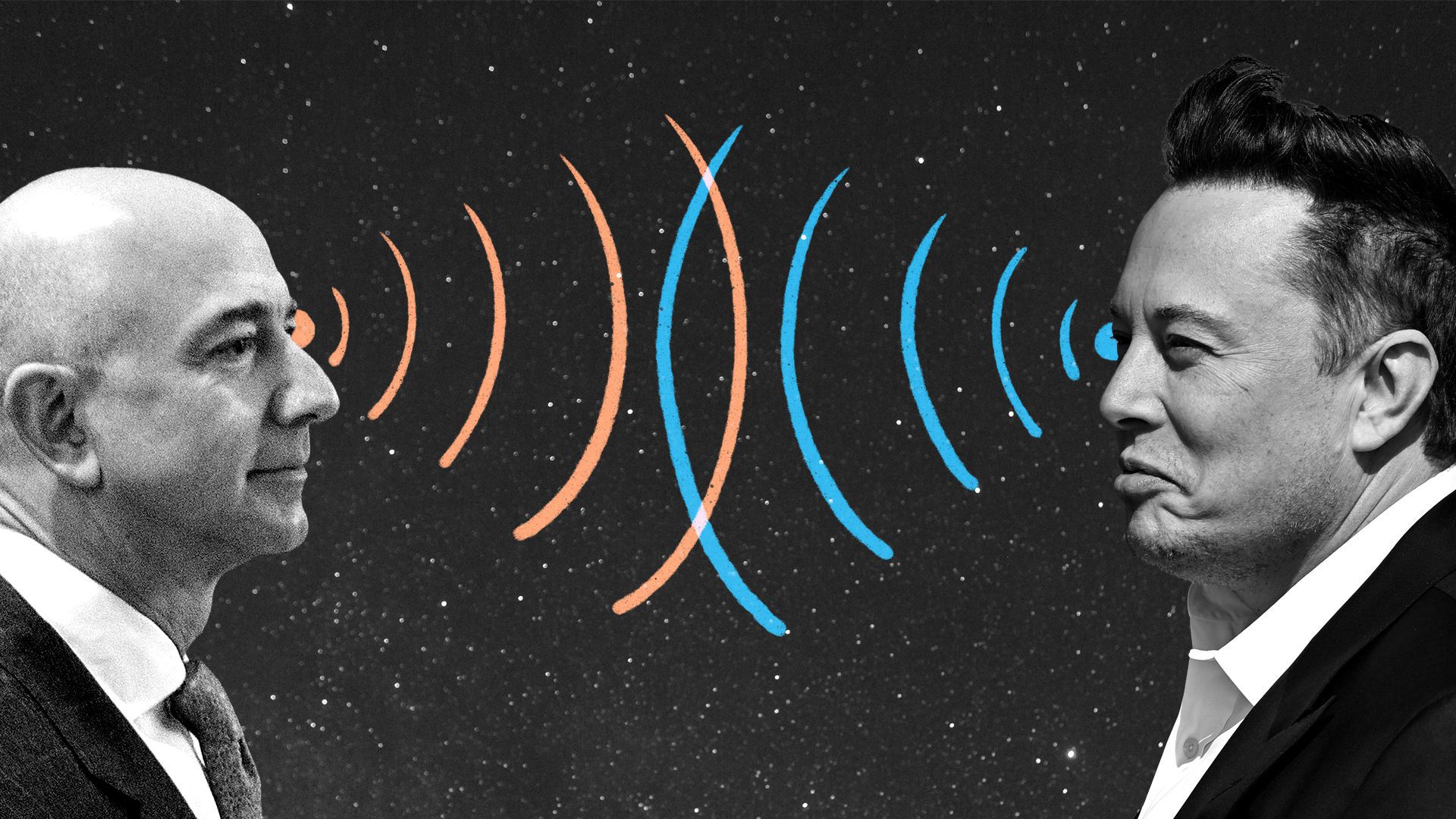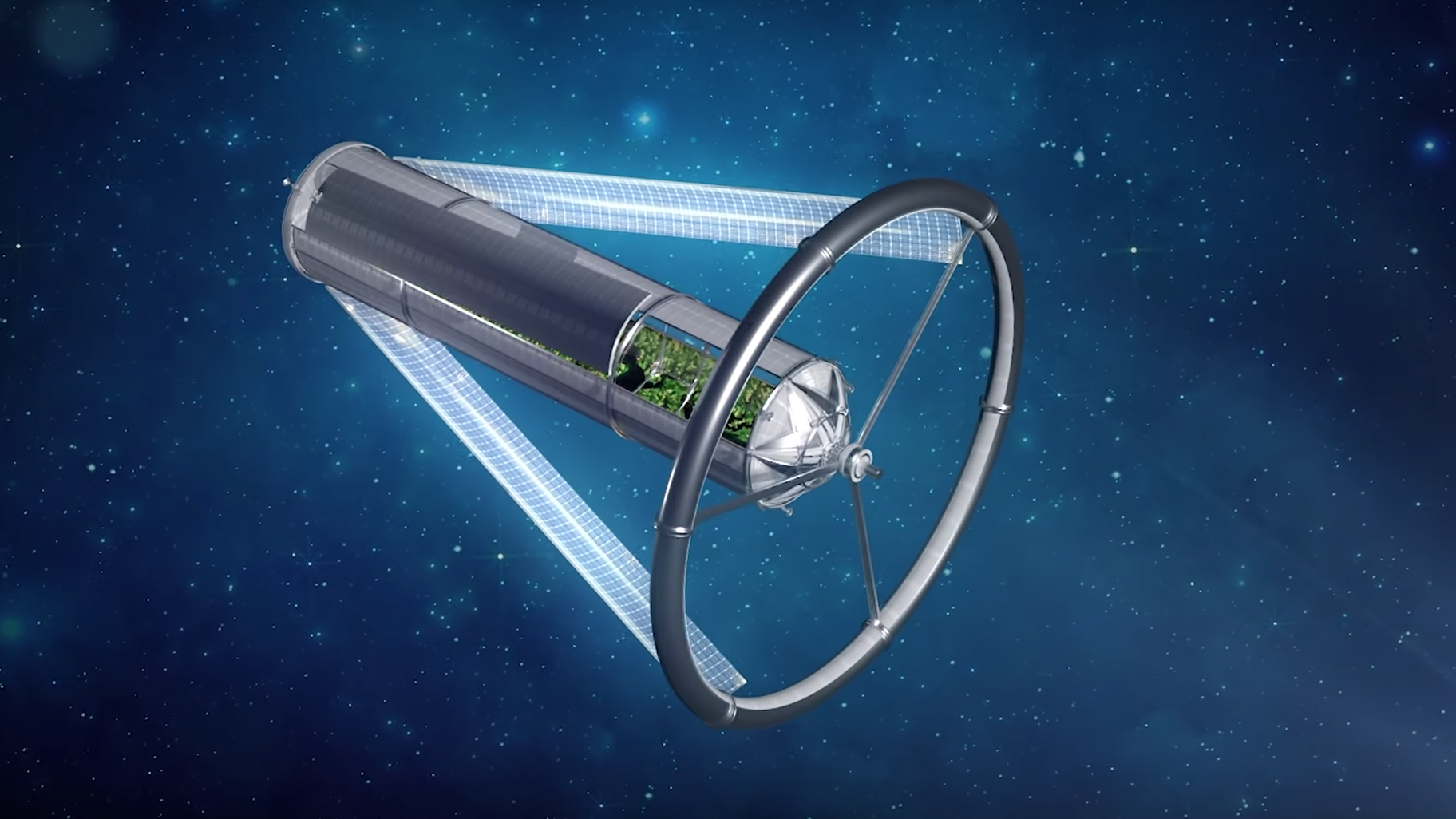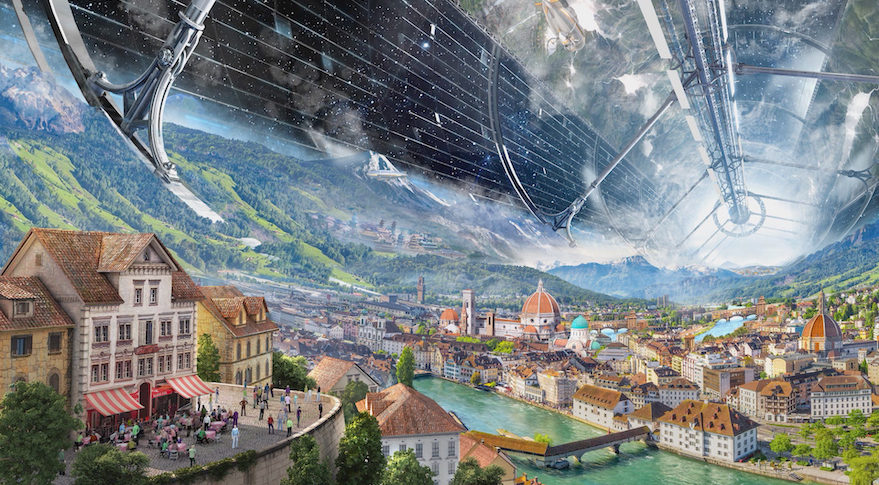How will Bezos stepping down from Amazon reflect in Blue Origin’s growth?
Maybe the days of AWS in space aren’t far off…or maybe we should revisit Blue Origin’s grander plans.
The cloud in space has been gaining traction in recent years with events such as SpaceX and Microsoft teaming up to connect the Azure cloud computing network to the growing Starlink satellite internet service. Also in the fall of 2020 was the release of Azure Orbital, a ground station service for connecting satellites directly to the Azure cloud. As we’ve seen in the past year though, the large tech giants have been expanding further and further into each other’s turf.

Just late last year, Amazon raised concerns to the FCC about Starlink’s modification request to lower their satellite attitude from 1,110-1,325 km to 540-570 km to reduce signal latency. Amazon’s concern was Starlink’s satellites would be too close to where it would like to deploy it's satellites for Project Kuiper, For those who are unfamiliar, Project Kuiper is essentially Amazon's answer to Starlink’s satellite network. The Project Kuiper network is already theorized to become a middleman for getting data into AWS, meaning it would be put in direct competition with the Starlink/Azure merge. I myself am wondering if those large AWS data centers will soon exist in satellites. In fact, I’m imaging a computing cloud that both physically and virtually surrounds the Earth…an idea that was only touched on, if mentioned at all, in the science fiction of a hundred years ago.

With Bezos now free of his major Amazon responsibilities, he can turn his focus to Blue Origin. While this is promising for company growth, Blue Origin in the past has been likened to a tortoise when compared with its rival SpaceX. That being said, while Blue Origin moves slower, it has a different goal. Blue Origin’s site states “in order to preserve Earth…we must go to space to tap its unlimited resources and energy.” Bezos himself believes, “Energy is limited here. In at least a few hundred years…all of our heavy industry will be moved off-planet. Earth will be zoned residential and light industrial.”
While this touches on moving heavy/polluting industry off planet, Bezos/Blue Origin announced in May 2019 on their long term goal to eventually make massive space colonies in O’Neill cylinders that would look like “Maui on its best day.” I highly recommend looking into his talk in the resources.* These space colonies would dwarf the International space station and house over a million people. Colonizing closer to home would also mean easy travel back to Earth and we wouldn’t be constrained by planetary gravitational fields.

As Blue Origin slowly inches toward this vision, I can’t help but look up and ponder what software we’ll need to sustain these O’Neill colonies. How can we monitor and sustain a whole ecosystem in a capsule orbiting earth? Currently these are questions for future generations but who knows how long they’ll stay that way. For now I’m focusing on the advantages of reusability whether that’s in a previously launched rocket, a component in my DOM or recycling plastic in my day to day.
